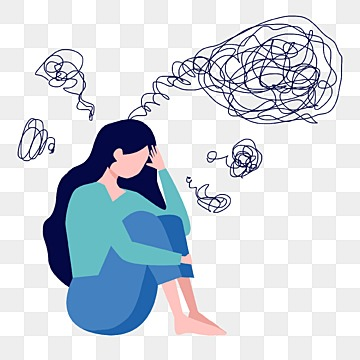Understanding Mental Health: A Journey to Well-being
In the bustling rhythm of our daily lives, it’s easy to overlook the importance of mental health. Often overshadowed by physical well-being, mental health plays a crucial role in our overall wellness. But what exactly does “mental health” mean, and why is it so essential? Let’s embark on a journey to unravel the mysteries of mental health in simple terms.

This image is from https://pngtree.com/free-png-vectors/mental-health site
At its core, mental health refers to our emotional, psychological, and social well-being. It encompasses how we think, feel, and act as we navigate life’s challenges. Just as physical health is vital for our bodies to function optimally, mental health is crucial for a balanced and fulfilling life.
Components :
- Emotional Well-being: Our emotions are like the colors of a vibrant painting, adding richness to the canvas of our lives. Emotional well-being involves understanding and managing our emotions effectively. It’s about embracing joy, coping with stress, and navigating the ebb and flow of feelings.
- Psychological Well-being: The mind is a complex landscape of thoughts, beliefs, and perceptions. Psychological well-being delves into how we view ourselves and the world around us. Positive self-esteem, a sense of purpose, and the ability to cope with life’s challenges are integral aspects of psychological well-being.
- Social Well-being: Humans are inherently social beings, and our connections with others profoundly impact on us. Building healthy relationships, fostering a sense of belonging, and maintaining a support system contribute to social well-being. Meaningful connections provide a safety net during tough times and amplify the joys of life.
The Importance of Mental Health:
- Quality of Life: Mental health is a cornerstone of a good quality of life. When our mental well-being is intact, we can savor life’s pleasures, face challenges with resilience, and build meaningful relationships. It’s the key to unlocking a fulfilling and satisfying existence.
- Physical Health Connection: Mental and physical health are intertwined. Stress, anxiety, and depression can manifest physically, affecting sleep, appetite, and overall bodily functions. Conversely, maintaining good physical health, such as through exercise and a balanced diet, positively influences mental well-being.
- Productivity and Creativity: A healthy mind is a fertile ground for productivity and creativity. When mental health is prioritized, individuals are better equipped to focus, problem-solve, and tap into their creative potential. This, in turn, contributes to personal and professional success.
Common Misconceptions:
- Weakness vs. Strength: One common misconception is equating mental health struggles with weakness. In reality, seeking help and addressing mental health challenges is a sign of strength. It takes courage to confront one’s emotions and work towards well-being.
- One Size Doesn’t Fit All: Mental health is a highly individual experience. What works for one person may not be suitable for another. It’s essential to recognize and respect the uniqueness of each individual’s journey to mental well-being.
- Normalizing Conversations: Breaking the stigma surrounding mental health is crucial. Open conversations about mental well-being help create a supportive environment, encouraging individuals to seek help without fear of judgment.
Practical Steps for Maintaining Mental Health:
- Self-Care: Incorporate self-care into your routine. This can include activities that bring you joy, relaxation, and a sense of accomplishment. Whether it’s reading a book, taking a walk, or practicing mindfulness, find what nourishes your soul.
- Connect with Others: Nurture your social connections. Reach out to friends, family, or support groups. Sharing your thoughts and feelings with others can provide valuable perspectives and emotional support.
- Seek Professional Help: Just as you would consult a doctor for physical health concerns, seeking help from professionals is essential. Therapists, counselors, and psychologists are trained to guide individuals through challenges and promote mental well-being.
Conclusion:
Understanding mental health is not just about recognizing disorders; it’s about embracing the spectrum of emotions and experiences that make us human. By prioritizing mental health, we unlock the potential for a more fulfilling, balanced, and joyful life. Let’s continue the journey of self-discovery, fostering a culture that values and prioritizes mental well-being for all.
